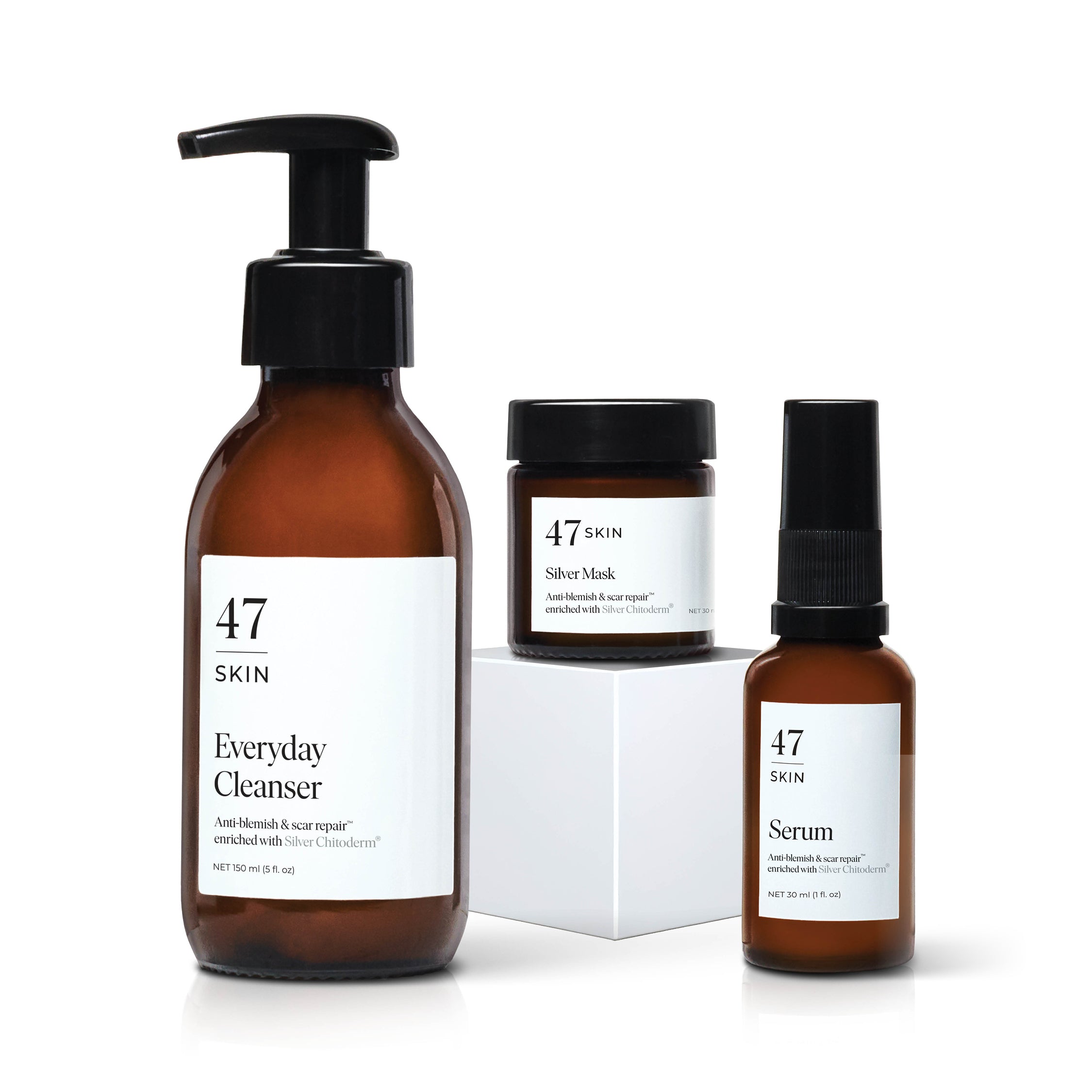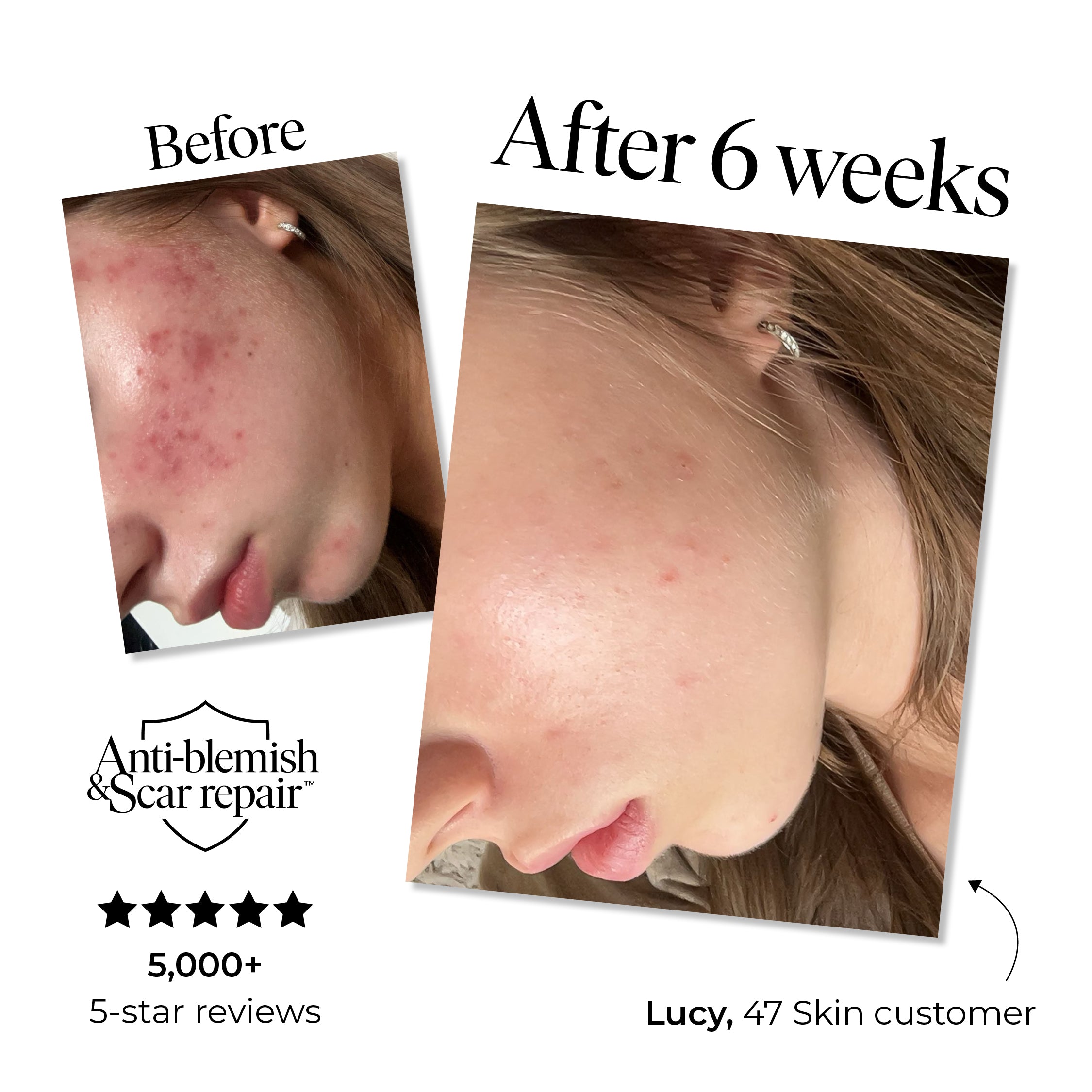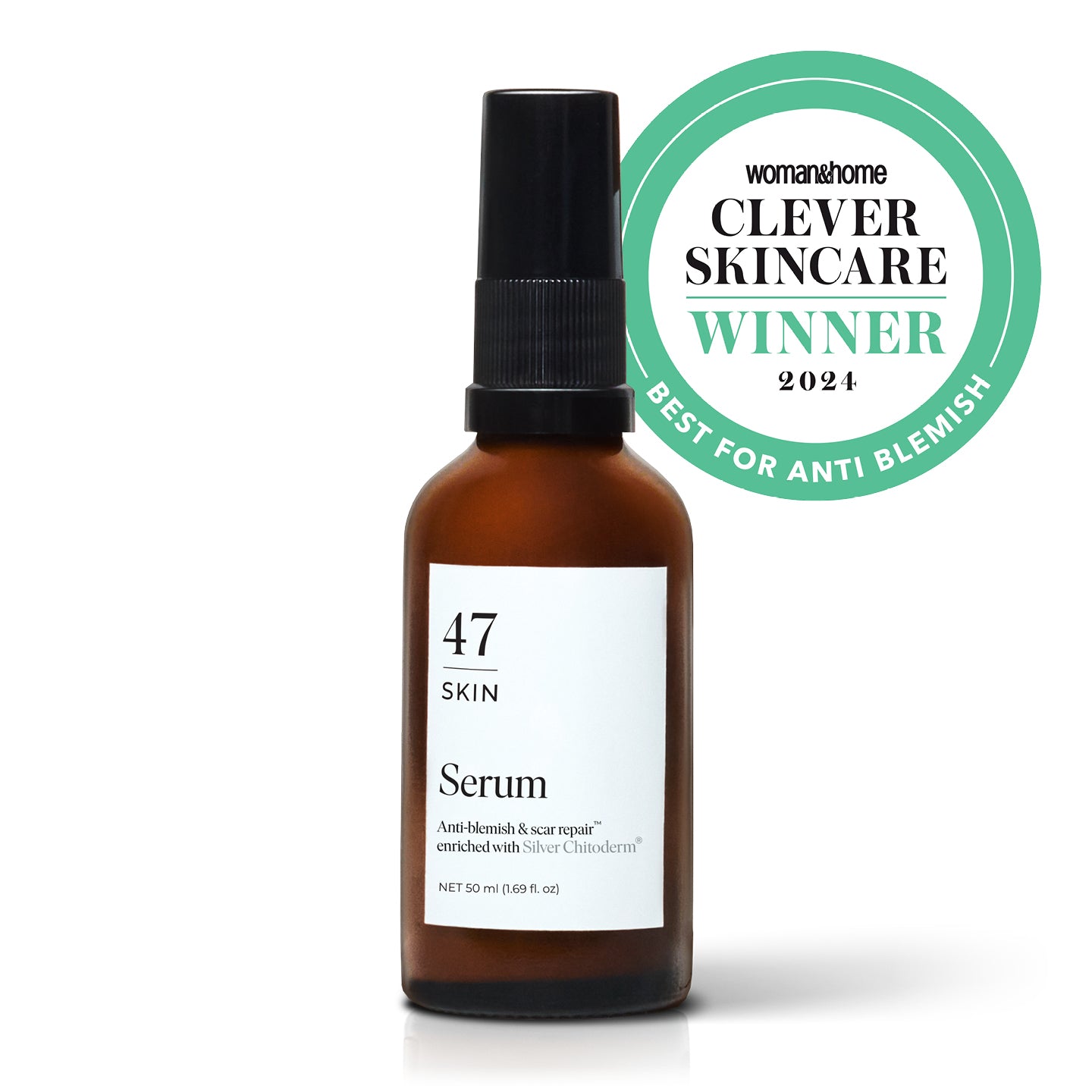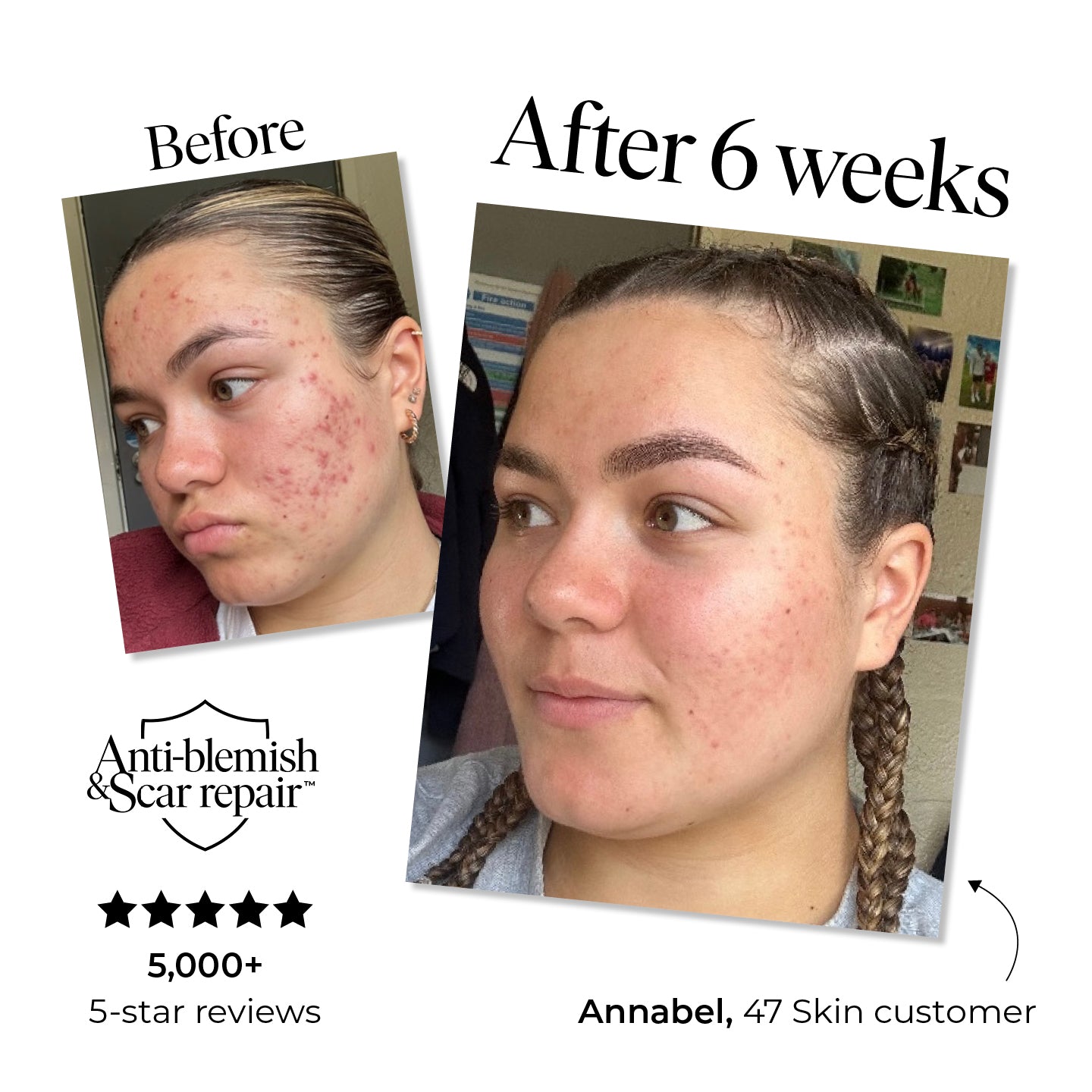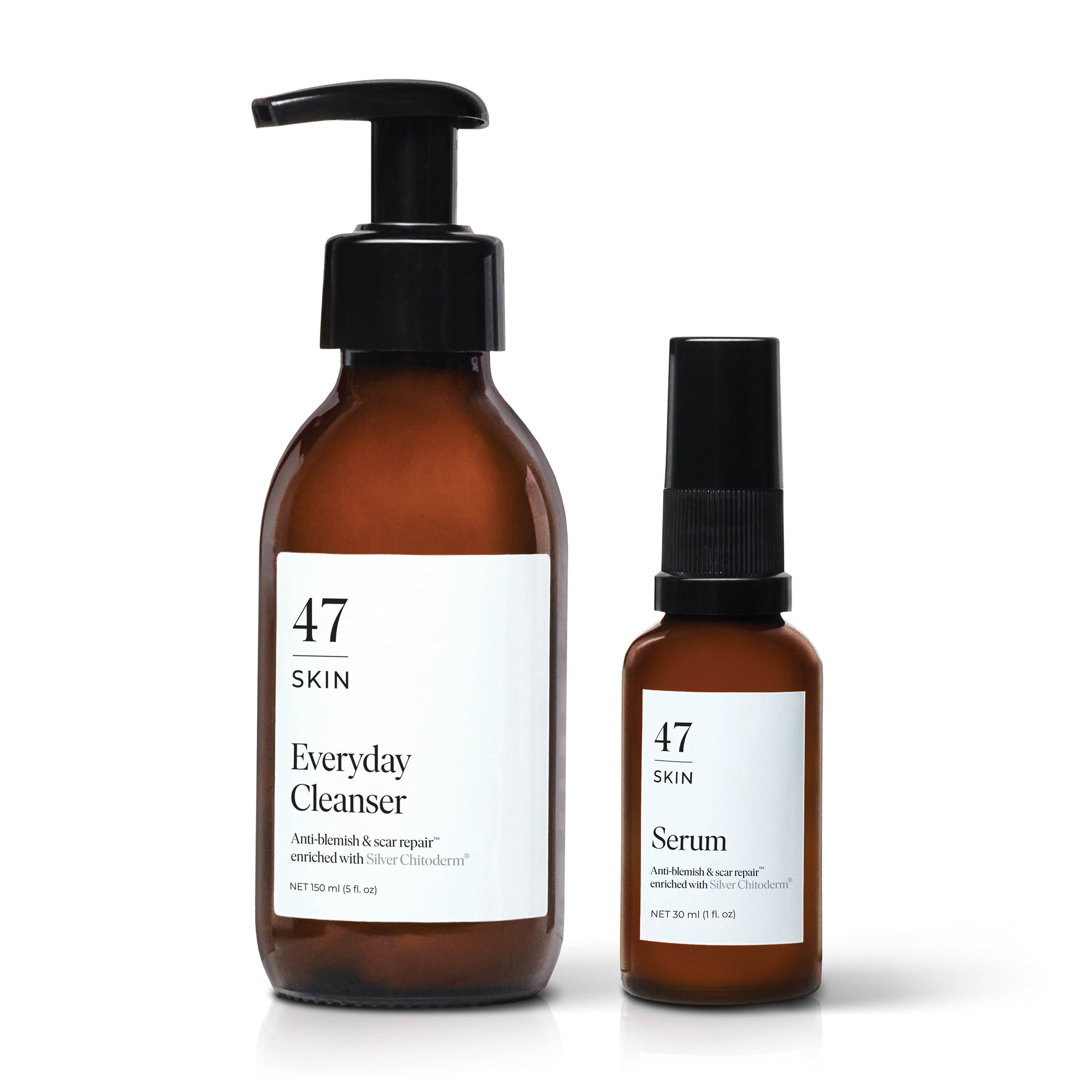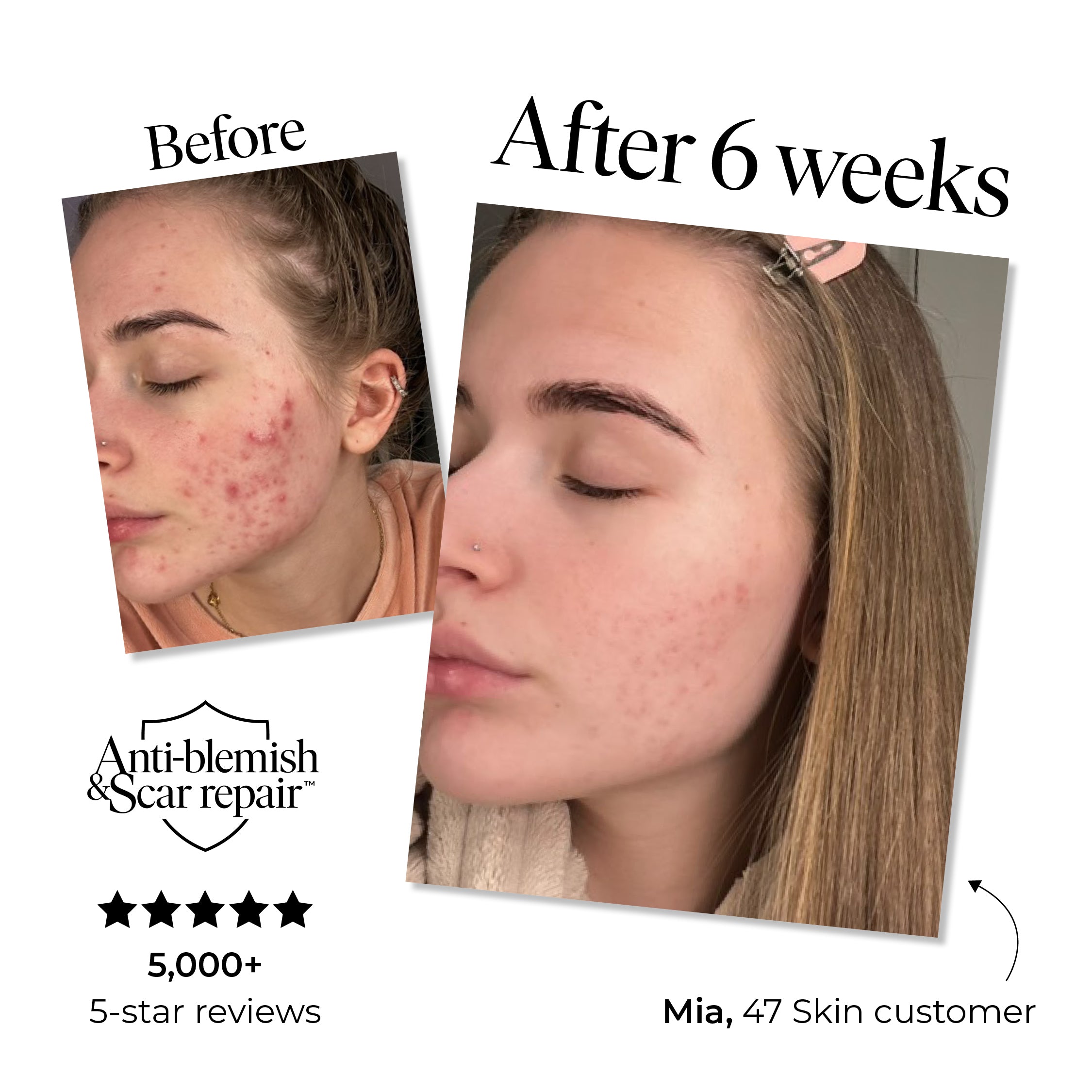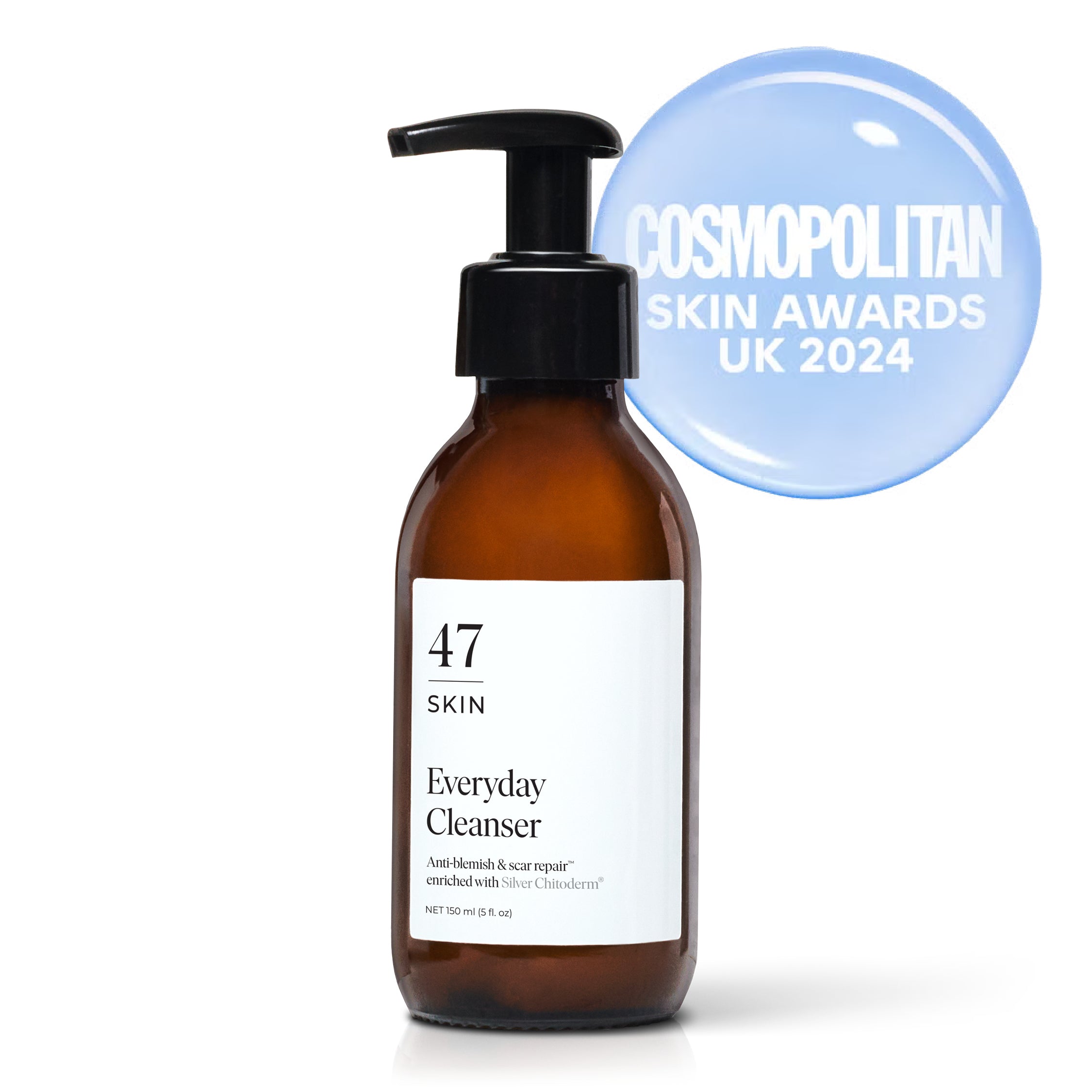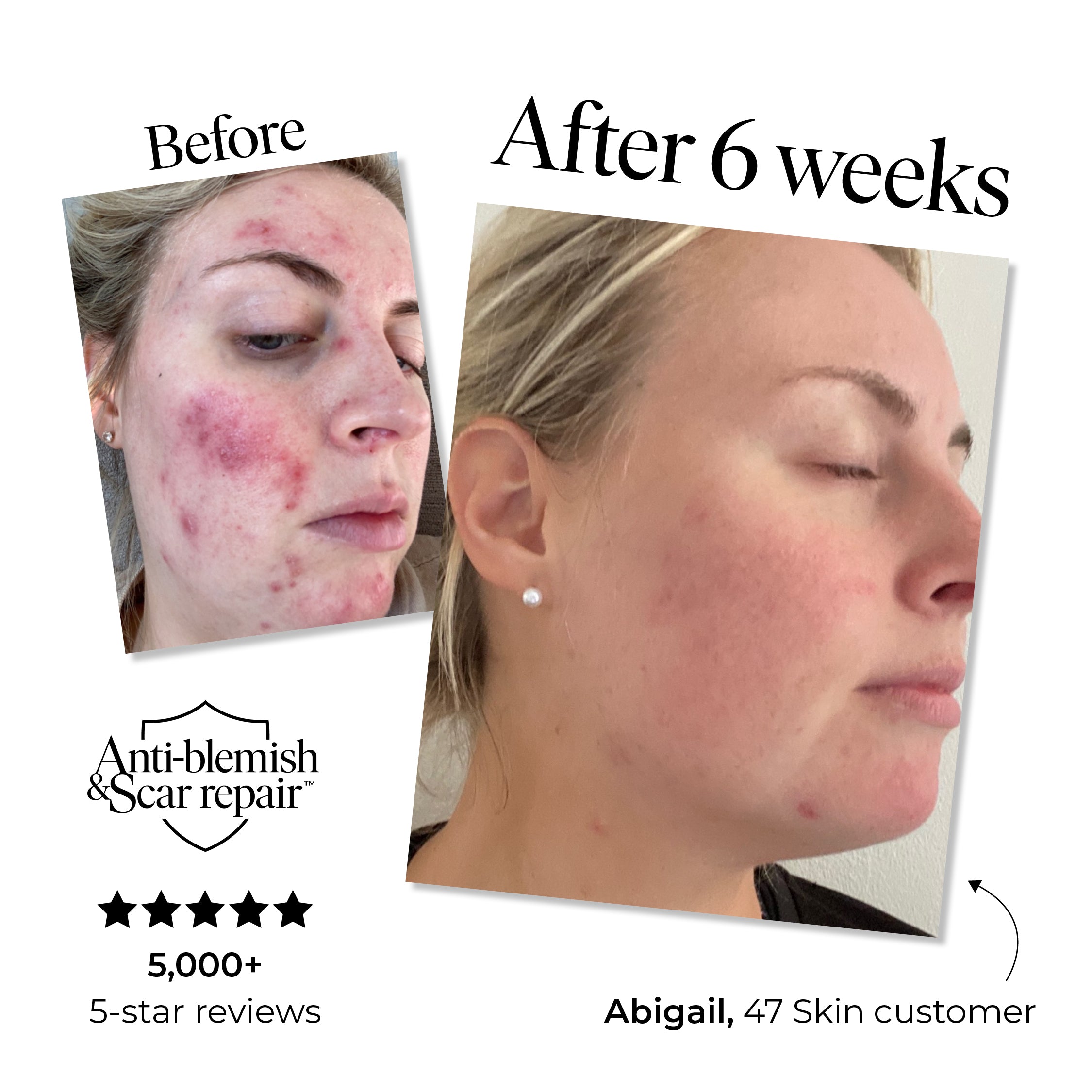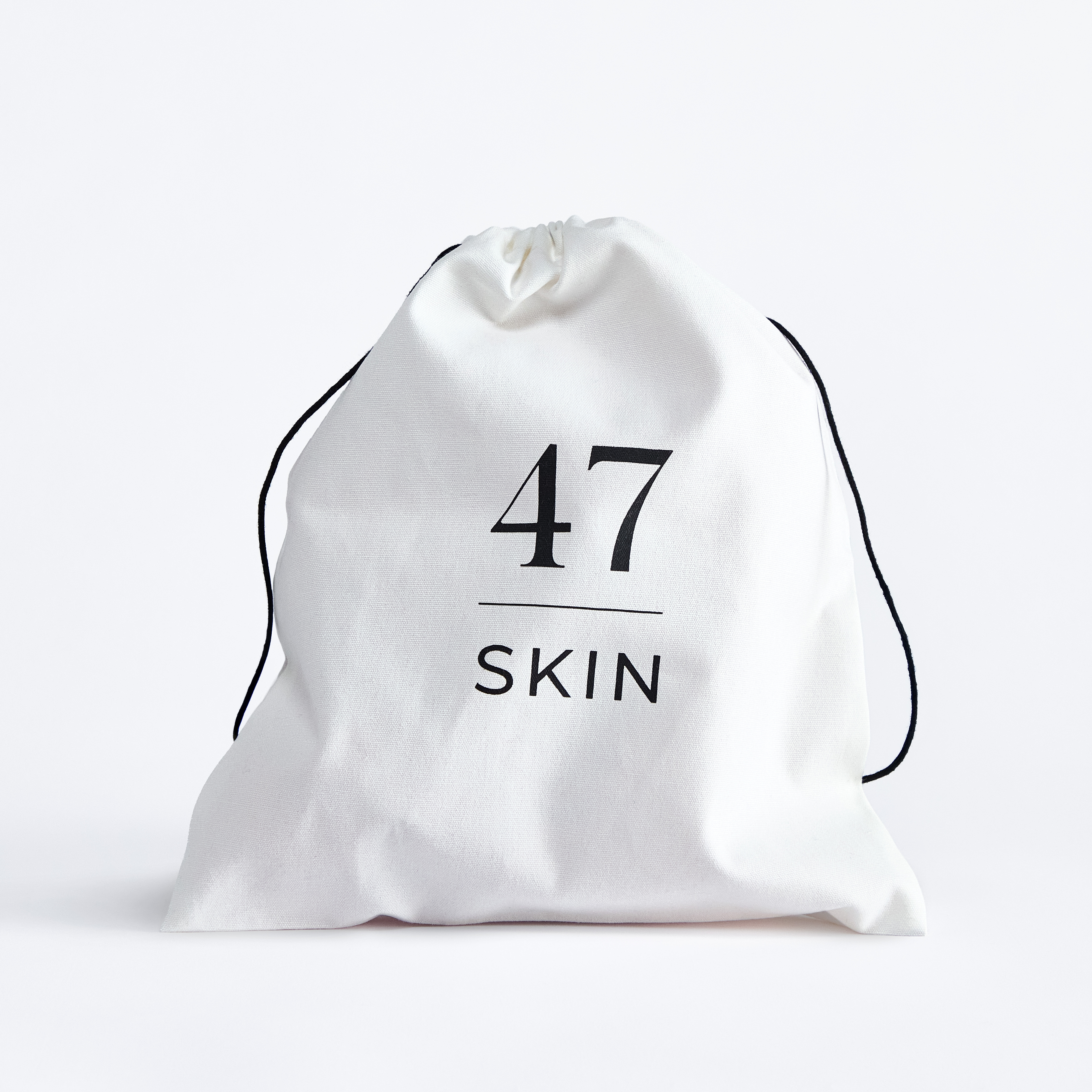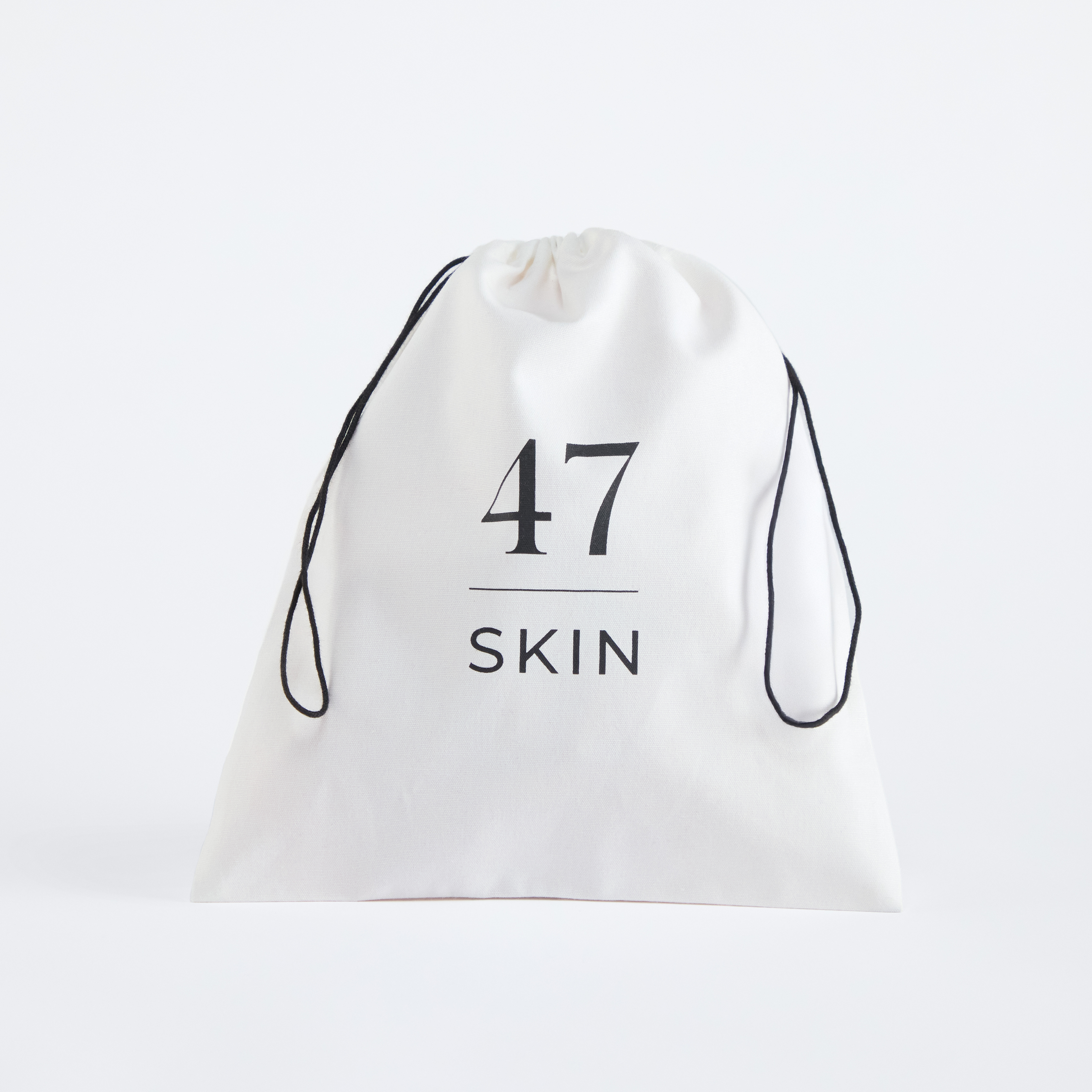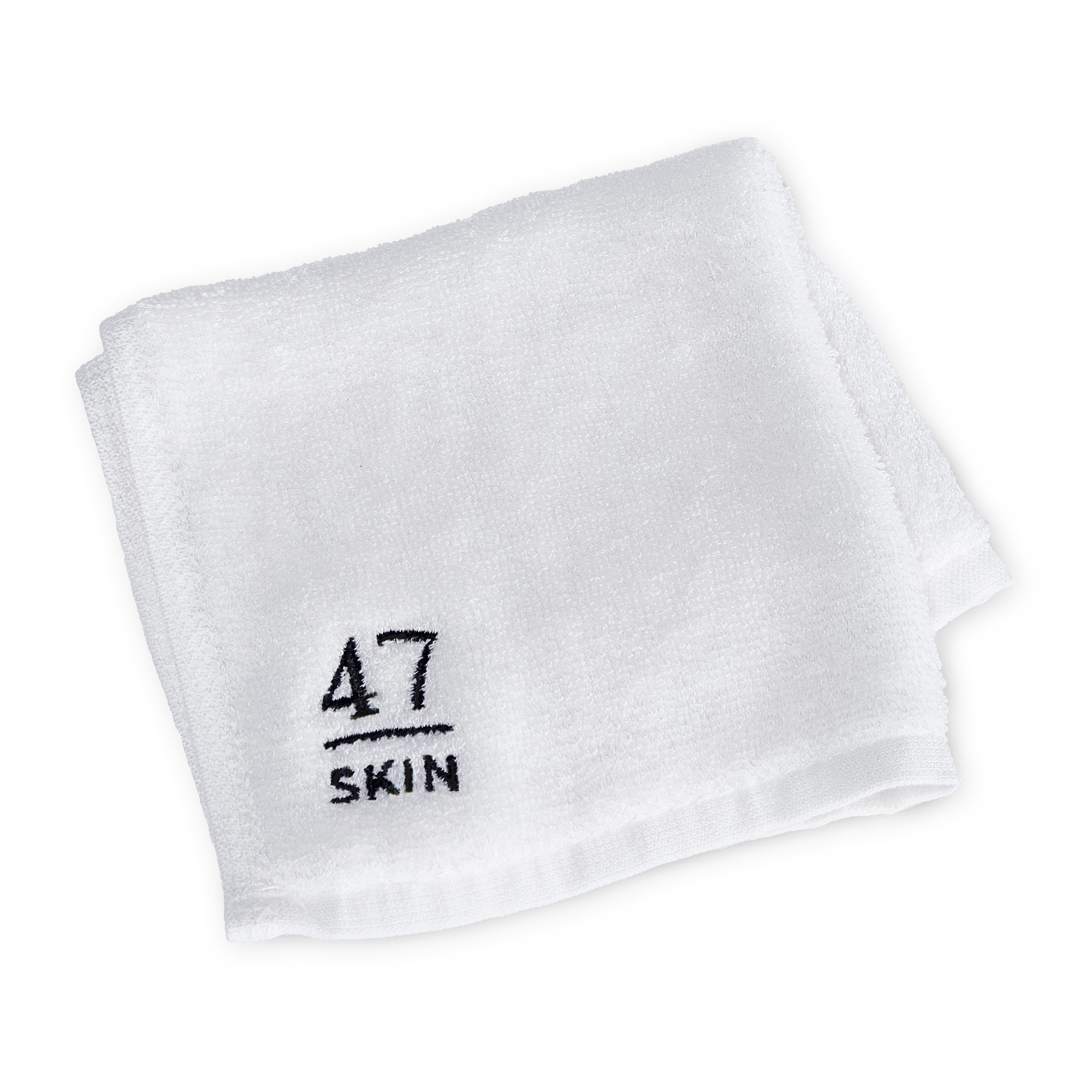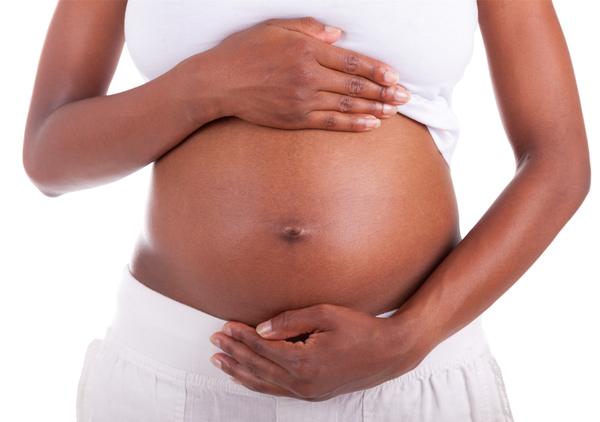
What happens to your skin during pregnancy?
What happens to your skin during pregnancy?
Acne
It’s completely normal to experience increased breakouts, especially during the first and second trimester.
This is due to your increased hormones which cause your pores to produce more sebum (oil).
There’s no way of telling whether you will get acne during your pregnancy, but you are more likely to develop it if you’re sensitive to breakouts around your period.
How to reduce acne during pregnancy
Acne during pregnancy is usually temporary and will clear up as your hormones level out again. But here are our top tips for keeping blemishes to a minimum:
- Cleanse & moisturise twice a day to remove bacteria and prevent blemishes.
- Use topical acne treatments to keep spots under control, as most acne medications are not safe for use during pregnancy. Our Anti-Blemish and Scar Repair Serum does not contain ingredients that should pose a hazard in pregnancy, but we always advise that our customers' check with their health care provider as we do not know their history.
- Avoid retinoids (such as tretinoin and adapalene) or any products containing a high concentration of salicylic acid as this is not recommended during pregnancy.
Pregnancy glow
The flushed and dewy complexion of a mother-to-be or ‘pregnancy glow’ is something that people often comment on. Although there is some truth in this, it doesn’t happen for everyone.
When you’re pregnant, your body produces more blood to support your growing baby. This can enlarge your blood vessels, leaving your skin looking more flushed than normal.
Your body also can become warmer from carrying the extra weight of the baby, meaning you may have more colour in your cheeks/ chest.
As your skin also often produces more oil during pregnancy, this can leave a natural shine on your skin.
How to naturally boost your pregnancy glow
Not everyone is blessed with a pregnancy glow, so here’s how you can boost yours naturally:
- Give yourself a 5 minute facial massage to stimulate blood flow and bring colour back to your cheeks.
- Apply a honey face mask to naturally detox and refresh your complexion.
- Exfoliate twice a week to remove dead skin cells.
- Get out in the fresh air. Going outside for a walk or some gentle exercise, if you’re able to is one of the best ways to help bring out your rosy cheeks!
Melasma
It’s fairly common to develop melasma (small darker patches of skin) in the second half of your pregnancy. They often appear on the forehead or in the centre of your face, and usually fade after giving birth.
How to treat and prevent Melasma
- Use plenty of sun protection (SPF50) on your face or any other areas exposed to the sun, during pregnancy.
- Apply a cream that fades dark marks, such as our Anti-blemish and scar repair cream to any areas affected by melasma. This contains Silver Chitoderm which helps diminish the production of pigment, fading dark marks and scars.*
Stretch Marks
Stretch marks are a very common side effect of pregnancy and often appear on the stomach and breasts.
Unfortunately, there isn't much you can do to prevent them, despite the claims made by so many products!
But one way to help reduce the chance of you getting them is to eat healthily so that you gain weight gradually throughout your pregnancy.
Stretch marks will usually fade 6-12 months after giving birth.
*We would always recommend consulting your GP if you do notice any changes to your skin during pregnancy or anything unusual, and always seek their advice before trying new products.
